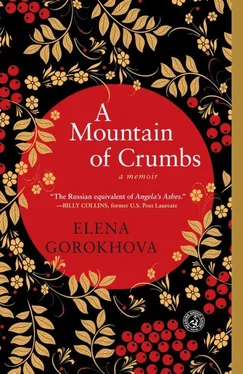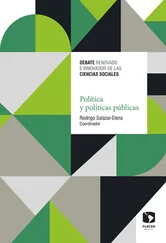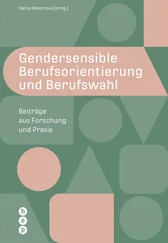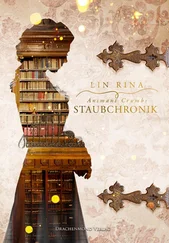“Whom did you write to?” Palkin asked gravely, barely waiting for her to sit down.
“I wrote to Secretary Stalin,” said my mother.
Palkin stared stonily from behind his glasses, and she thought of Uncle Volya. They still hadn’t heard anything about him, despite the fact that Aunt Lilya took a week off to travel to Moscow, where she spent four days and nights standing in front of the Lubyanka NKVD prison, waiting to speak to someone, never allowed inside.
But my mother wasn’t about to show that she was frightened, that her heart, contrary to all she knew about anatomy, was thumping somewhere in her throat. Showing what you felt was as dangerous as babbling. Lock up what you think, my grandmother had always said. What’s inside you no one can touch.
“I’ve just received this order from Moscow,” growled Palkin, baring bad teeth, stabbing a piece of paper with his finger while my mother imagined black voronoks and firing squads. “According to this order, Moscow is releasing fifteen thousand rubles to turn your apartment into a delivery room.”
He might as well have said fifteen million rubles. My mother made three hundred rubles a month, a salary her former classmates envied, and since her largest purchase ever had been a woolen winter coat, she’d never seen a ruble note with more than one zero.
Back at the hospital, she went to the peat factory director’s office and asked him to give her a room in the workers’ dormitory. Only days after her meeting with Comrade Palkin, the needed equipment arrived and was installed in her former apartment with an efficiency she’d never seen before. By the spring a four-bed maternity ward was opened, where my mother delivered fifteen babies. During deliveries, she learned how to use forceps, turn a fetus, and manually separate the placenta. The women at the peat factory expressed their gratitude with string bags of cucumbers from their gardens and an occasional tin of lard.
My mother felt euphoric and important: what she’d done had upheld poryadok , order. The order that the country needed, that she needed. She described all this in her letter home, which, when she reread it, sounded as lofty and stiff as the front page of Pravda . Yet what she wanted to say was simple and short.
She’d survived.
WHEN MY MOTHER MET my father in 1950, she had an eight-year-old daughter, my half-sister, Marina, and had already been married twice, two meteoric war marriages whose trajectories faded within months.
Her first husband was delivered to her by the short war of 1939 between the Soviet Union and Finland, laid out on her operating table with bits of shrapnel buried in his rear end.
“What a way to stop a bullet,” said her former classmate Vera, who had been drafted into the same hospital.
My mother sliced open the buttocks of her future spouse and extracted pieces of metal, all except one, a shard lodged near the hip bone. She tried and tried, cutting and prodding, but finally had to leave it there, a lasting memory of their first meeting stowed deeply under his skin.
His name was Sasha Gladky, a graduate medical student himself all the way from Leningrad University, and he joked and laughed about his wound, basking in the attention of the female hospital staff. My mother, looking serious during the daily rounds, evaluated the healing process and checked the sutures. Being in full control of Sasha and his treatment—the expression of his broad-boned face with a slight cleft in the chin when she checked his temperature, the gratitude she could read in his gray, deep eyes—made her want to stay with him forever.
“I bet you he’ll ask me to marry him,” said my mother to Vera, nodding her head toward the door behind which Sasha lay surrounded by nurses. It was almost two weeks since she had operated, a few days before he was scheduled to return to Leningrad.
She liked Sasha’s eyes following her around the room as she sterilized syringes in boiling water, trying to concoct a plan to keep him there longer. She was approaching twenty-five, rapidly getting too old for marriage. Her own mother had married when she was eighteen, her friend Vera when she turned twenty-two. The best child-bearing age, as everyone knew, was twenty, and she’d missed that a long time ago.
Two days after the prescribed date, she signed his discharge order. Before leaving, Sasha waited for her in the back lot overgrown with thistle, where with a bashful smile, he announced that it was fate that had brought them together. He promised to send her a letter every week and a box of chocolates. “Chocolates!” marveled Vera. “For chocolates I’d marry him, too.” A box arrived a few weeks later, embossed with Peter the Great atop a rearing horse, the famous Leningrad “Bronze Horseman” on the front. Since the beginning of the war, chocolates had completely vanished from the stores, and this huge box reminded my mother that it was her efforts and skill that had saved Sasha.
A few months later, when the Finnish War ended, Sasha came back to Ivanovo and they were married. Marriage was easy then, a fat purple stamp from the town hall on the third page of their internal passports and a name change for my mother from Kuzminova to Gladky. After four days Sasha returned to his studies in Leningrad. He sent letters to my mother once a week, then once a month. Then came a letter she did not expect: he accused her of having affairs while he was stooping over medical journals in the Leningrad library. Someone, an anonymous source, had informed him in a letter that his new wife— stroinaya kak beryozka , tall and slender as a birch tree—was, as he scribbled in a quick, slanted stroke, nothing but a tart.
My mother felt shock, then anger. She immediately grabbed a pen and wrote back to Sasha that if he could believe this, the two of them had nothing to discuss. If he could trust such toxic gossip, they were finished and their marriage dissolved.
She didn’t really mean it. She simply wanted to register her indignation and discontent, expecting an apology and another box of chocolates. But no answer came. She waited two months and sent an angry inquiry to the anatomy department of Leningrad University, where he studied. The response came months later, in the fall of 1941, when German troops were already deep into Russia. Like all doctors, Sasha had been drafted to the front. On the map of the Soviet Union, where the black stain of German troops was rapidly expanding, there were already several fronts, and no one knew where they’d sent Sasha. No one would ever know.
NOW A DOCTOR AS well as an anatomy researcher at Ivanovo medical school, my mother was drafted, too, pulled away from her petri dishes and long-dead organs floating in jars of formaldehyde to sew up live, lacerated flesh at a frontline hospital. In her newly issued uniform, a khaki shirt cinched with a hammer-and-sickle belt over a narrow skirt, she looked too pretty to be part of the war, too willowy and long-legged, despite her black army boots that were two sizes too big.
All three of her brothers had been drafted during the war with Finland. They were stationed at the opposite ends of the country, Sima and Vova in the Far East, close to Japan, and Yuva on the border between the Soviet Union and Poland. On Sunday, June 22, 1941, when German tanks first rolled onto Soviet soil, my mother thought of Yuva stationed on the Polish border. Like every person in the country, benumbed and bewildered, she listened to Molotov’s voice pouring from loudspeakers, announcing the invasion. She stood near the ambulance of the town emergency room, where she worked on weekends, its doors swung open, its engine choking. The humid smell of lilacs hung in the air, and the sun blithely beamed down through the lace of June leaves like an idiot laughing and dancing as flames gut his house. Why was it Molotov, the People’s Commissar for Foreign Affairs, speaking to the country, and not Stalin himself? Where was Stalin when the German tanks were rolling over platoons of brothers and sons and even wayward husbands?
Читать дальше












